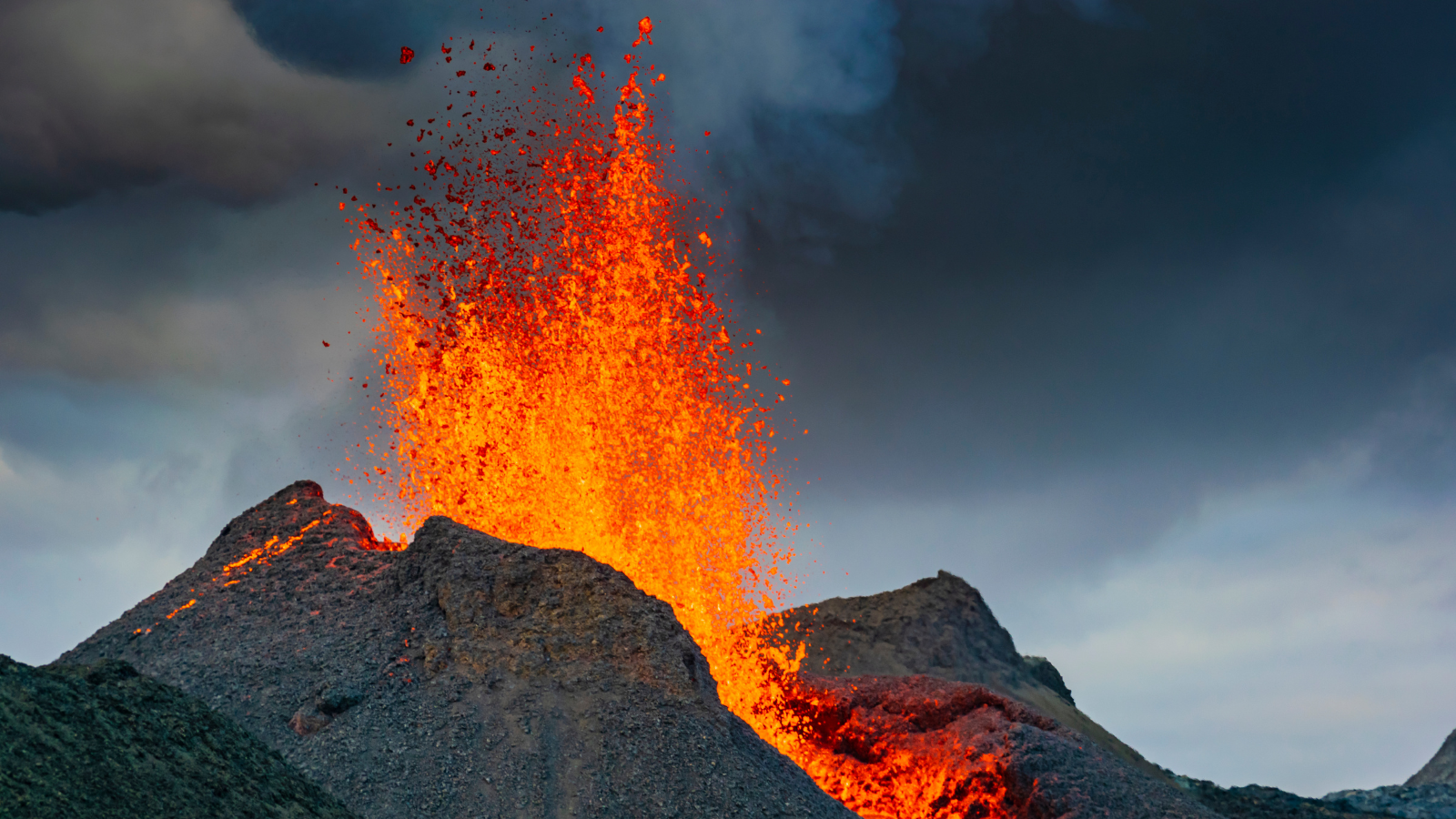SEISMIC ACTIVITY ON THE REYKJANES PENINSULA
UPDATE: NO VOLCANIC ACTIVITY HAS BEEN DETECTED SINCE THE MORNING OF JANUARY 16.
A volcanic eruption started on Sunday, January 14, near Grindavík on the Reykjanes Peninsula. The town had previously been evacuated, and people were not in danger. No volcanic activity has been visible since one o'clock a.m. on January 16.
Key Takeaways:
- A volcanic eruption started on January 14 near the town of Grindavík on the Reykjanes Peninsula. No volcanic activity has been visible since one o'clock a.m. on January 16.
- The eruption's effects are confined to the town and the immediate area surrounding the eruption site. All services in Iceland are operating normally.
- There is no disruption to air traffic iand flights to and from Iceland are operating on schedule.
- Authorities request people stay away from the area and do not attempt to walk to the eruption site. All roads to the area are closed.

Since October 24, 2023, scientists at the Icelandic Meteorological Office have been carefully monitoring increased seismic activity on the Reykjanes Peninsula, which is considered a possible precursor to a volcanic eruption in the area. This development resulted in a short eruption that lasted from December 18-21, 2023, near the town of Grindavík. Volcanic activity returned on Sunday, January 14, when two new fissure eruptions started in area. All residents had previously been evacuated from the town. No volcanic activity has been visible since one o'clock a.m. on January 16.
Preliminary reports suggested that the lava flows was less voluminous than the December 2023 eruption. This is a highly localized event, and the effects of the eruption are contained in the immediate area surrounding the eruption site. Iceland generally remains unaffected, and daily life outside of Grindavík proceeds as normal.
There is no disruption to air traffic and all flights to and from Iceland are operating normally. Typically, the impact of volcanic eruptions is confined to a specific, localized area near the eruption. Notably, previous eruptions in the area did not impact flights to and from the country.
The area has been evacuated and is closed. Authorities request that people do not attempt to walk to the eruption site. Many crevasses have formed in the area, along with unseen hazards and search and rescue teams are occupied.
The Icelandic Meteorological Office, The National Police Commissioner, The Department of Civil Protection and Emergency Management, and a team of scientists from the University of Iceland are closely monitoring this situation and are constantly analyzing developments based on the best scientific data available.
Iceland is situated on the Mid-Atlantic Ridge, where the North American and Eurasian tectonic plates diverge, making it one of the most active volcanic regions in the world. Regular seismic events, ranging from minor tremors to significant earthquakes, are a characteristic feature of Iceland's geology. Seismic activity in Iceland is often due to magma movement beneath the earth's crust and tectonic plate movements. These geological actions sometimes result in magma seeking the easiest path to the surface and thereby becoming a volcanic eruption.
Iceland is no stranger to volcanic activity. Four eruptions have occurred on the Reykjanes Peninsula in the last three years. Icelandic authorities and the public are highly prepared for such events, and Iceland has some of the world's most effective volcanic preparedness measures. Iceland's geoscientists possess vast experience in dealing with volcanic activities.
More information:
Flights to Iceland
The seismic activity in Iceland is highly local at the moment. As such, any possible eruptions aren’t likely to affect the flight schedule in and out of Iceland. The eruptions in the Reykjanes peninsula in the last two years have not impacted Icelandic flights. Scientists are tracking the situation and the impact of a potential eruption cannot be undermined.
Latest Updates
Whether you’re simply curious or are planning a trip to Iceland, check out the following links to stay in the loop about the current volcanic activity in Iceland.
- Visit Iceland
- BBC News
- The Icelandic MET office: Latest information on seismic activity and development of events
- Safetravel: Current updates on safety
- The Icelandic National Broadcasting Service: News coverage
- Visit Reykjanes: Updates from the region